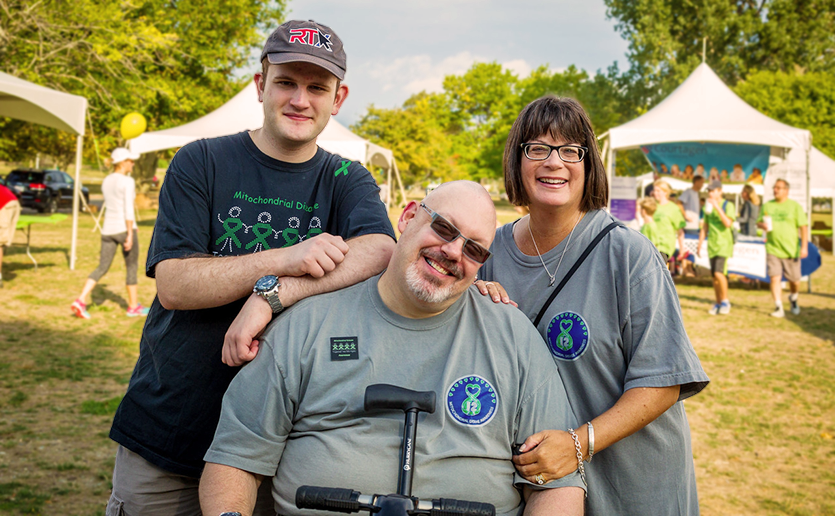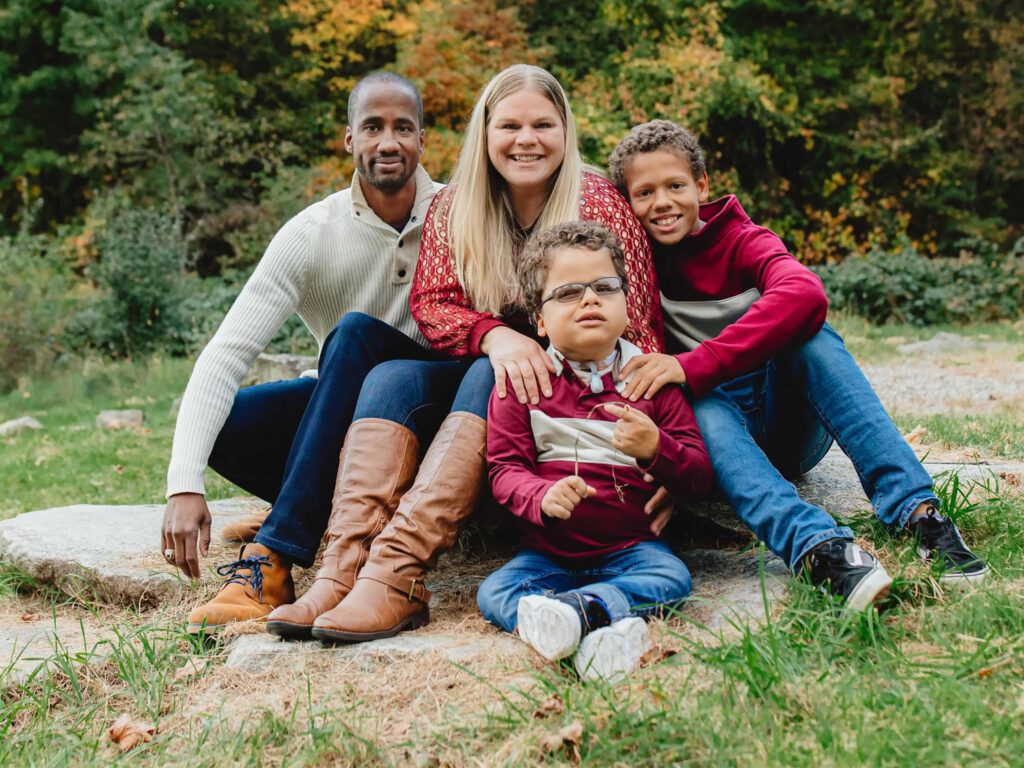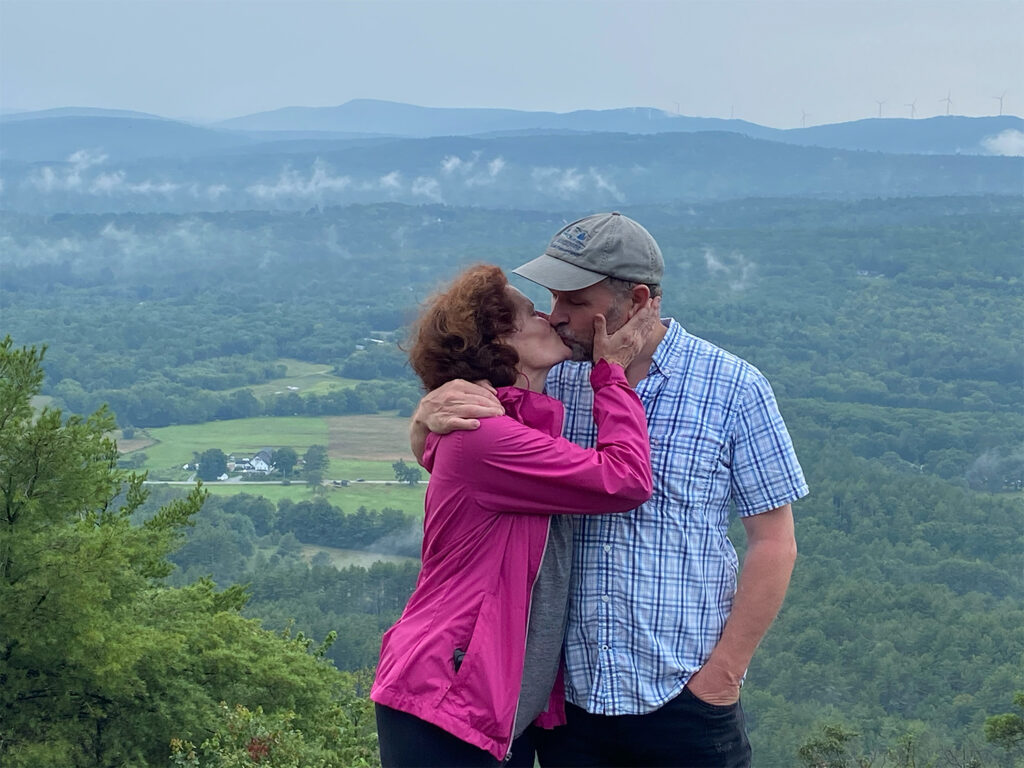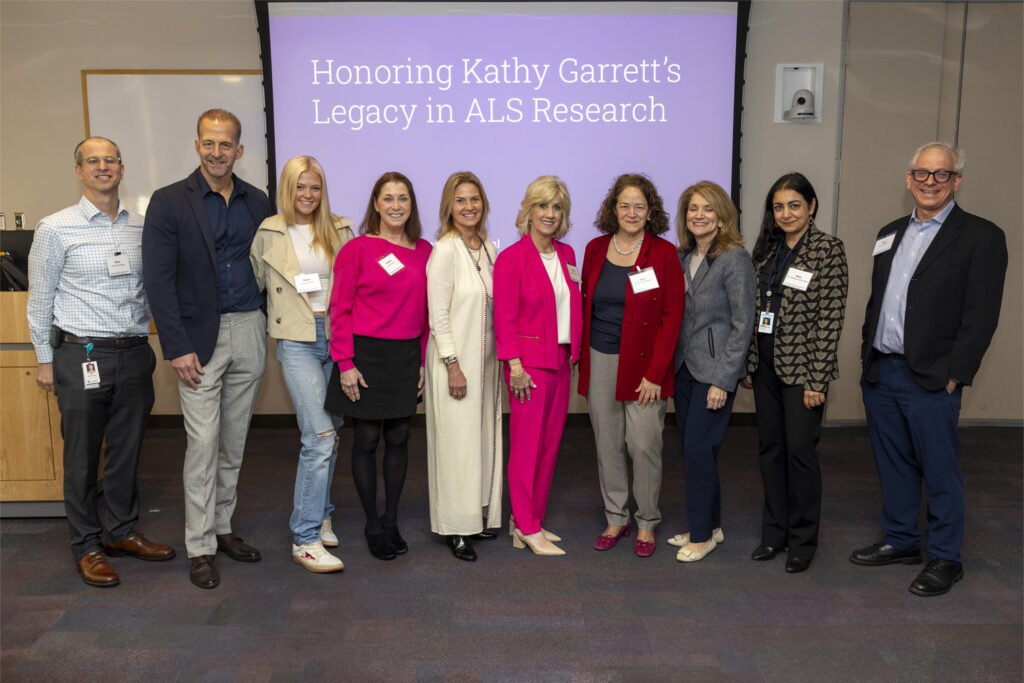Michael Goldberg wants to ease the complexities and uncertainties of mitochondrial diseases with a simple and clear act: a hug. Make that many (metaphorical) hugs.
“Doctors would say, ‘Yes, we know something is going on.’ But they didn’t know why, and I’d leave their offices with my head hung low.”
Mitochondrial diseases impede the body’s energy production processes and cause an array of medical problems such as muscle weakness, nervous system dysfunction, fatigue and seizures. Michael’s struggles with this mysterious condition forced him to retire early, but the 54-year-old has turned his physical afflictions into a source of hope. He created the nonprofit organization Hugs for Mito to build awareness and raise funds for scientific research that aims to better diagnose and treat mitochondrial diseases.
The Hugs for Mito website is a repository for information about mitochondrial and other rare diseases, and it’s an online store for branded clothing and bracelets, with sales proceeds benefitting research at Massachusetts General Hospital. “We want to see people get well,” Michael says of the organization, which he runs with his wife, Judi, out of their home in Easton, Massachusetts. “I’ve seen babies and kids succumb to this and other rare diseases. You never know when it can strike your family.”
The prime recipient of Hugs for Mito support is Amel Karaa, MD, a geneticist who leads Mass General’s Mitochondrial Disease Clinical Program and who treats patients at MassGeneral Hospital for Children. Dr. Karaa wants to shift mitochondrial disorders from the fringes of healthcare to a place where doctors can more easily recognize them. Because mitochondrial disorders are often difficult to pinpoint, patients can go as many as 20 years without understanding why they’re sick, delaying treatment and exacerbating poor health.

“Even when you do the most comprehensive testing, about 40 to 60 percent of people with a suspected mitochondrial disorder still don’t have a specific diagnosis,” Dr. Karaa says. She hopes to change that.
The Mysteries of Mitochondrial Disease
Everyone has mitochondria. They are the engines of most cells. Mitochondria convert a body’s fats, sugars and proteins into the chemical energy that keep cells alive. Incurable and usually inherited, mitochondrial diseases hinder energy production and cause a wide range of symptoms – including neurological problems, muscle weakness, and diseases of the heart and liver – that can be diagnosed as other medical conditions.
For three years, Michael struggled with the unknowns of mitochondrial disease as doctors failed to determine why he couldn’t see well out of his left eye, why his body ached and why he had difficulty eating. “Doctors would say, ‘Yes, we know something is going on.’ But they didn’t know why, and I’d leave their offices with my head hung low,” Michael recalls. “I wondered, Who do I see next? How do I manage the symptoms?”
Dr. Karaa is grateful for Hugs for Mito and for Michael’s ongoing support. “He took this disease and made something positive about it,” she says.
Unable to work because he lacked energy and relied on an electric scooter to move, Michael retired. Without a proper diagnosis, life seemed bleak until late 2014, when he learned through Dr. Karaa that he had a mitochondrial myopathy, a nervous system disorder brought on by mitochondrial disease. With treatment and therapy, he no longer needs the scooter and instead uses a cane. His health and spirits have improved in the past four years, giving him the energy and motivation to run Hugs for Mito and be one of Dr. Karaa’s biggest supporters.
“She’s a brilliant geneticist and researcher,” Michael says. “If anyone can find a cure, I believe she can be the one.”
Research Supported by a Smile
Dr. Karaa studies patients like Michael to understand how mitochondrial-related symptoms differ from the symptoms of other diseases. By cataloging the histories of patients, she hopes to eventually see the clear-cut differences between the symptoms tied to the failures of mitochondria and the symptoms of other diseases.
Her other focus is on testing drugs that target mitochondrial disease. Her program is in the middle of a clinical trial that she hopes will, in the next few years, lead to an FDA-approved drug that will help patients with mitochondrial myopathies, diseases that cause muscular problems.
In the meantime, Dr. Karaa is grateful for Hugs for Mito and for Michael’s ongoing support. “He took this disease and made something positive about it,” she says. “He is always so positive and smiling. That gives me a lot of joy.”
Learn more about Hugs for Mito by visiting the website.






